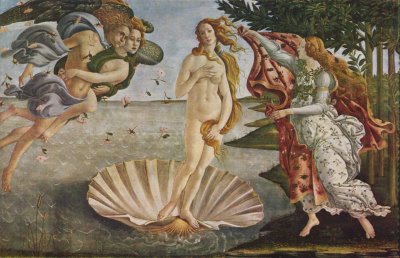
The Floralia, also known as the Florifertum, was an ancient Roman festival dedicated to the goddess Flora. It was held in late April through early May and symbolized the renewal of the cycle of life, marked with dancing, drinking, and flowers. The Floralia was on the IV Kalends May. While flowers decked the temples, Roman citizens wore colorful clothing instead of the usual white, and offerings were made of milk and honey to Flora.
In Roman mythology, Flora was a goddess of flowers and the season of spring. While she was otherwise a relatively minor figure in Roman mythology, being one among several fertility goddesses, her association with the spring gave her particular importance at the coming of springtime. Her festival, the Floralia, was held in April or early May and symbolized the renewal of the cycle of life, marked with dancing, drinking, and flowers. Dedicated to Flora, the goddess of flowers and vegetation, this day was considered by the prostitutes of Rome to be their own. Her Greek equivalent was Chloris.
Flora was married to Favonius, the wind god. Due to her association with plants, her name in modern English also means plant life. Flora achieved more prominence in the neo-pagan revival of Antiquity among Renaissance humanists than she had ever enjoyed in ancient Rome.
There are many stories in Greek mythology about figures named Chloris ("Khloris" or "Khloros" meaning "greenish-yellow", "pale green", "pale", "pallid" or "fresh"). Some clearly refer to different characters; other stories may refer to the same Chloris, but disagree on details.
Chloris was a Nymph associated with spring, flowers and new growth. She was abducted by (and later married to) Zephyrus, the west wind, who gave her dominion over spring. Together they had a son, Carpus. Carpus means "fruit" in Ancient Greek, and the natural metaphor formed by the three can be seen in the following quote: "Zephyros... the personification of the West Wind which brings with it freshness and rain in the spring. He would unite with Chloris, goddess of the new vegetation, from which sprout the fresh fruits of the soil."
Chloris's festival, Floralia, was celebrated on April 28 to May 1 until the 4th century.

No comments:
Post a Comment